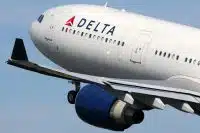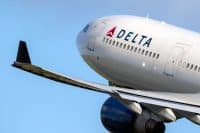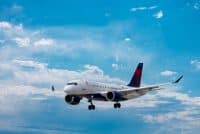Home » Employment News » Airline pilots demand pay hikes and better working conditions
Airline pilots demand pay hikes and better working conditions
https://www.whatjobs.com/news/employment-news/airline-pilots-demand-pay-hikes-and-better-working-conditions

By Nithya Bose in Employment News, posted July 12, 2022

Pilots across the US are pushing for pay rises as the airline industry grapples with challenges like staffing shortages, bad weather, high fuel prices, and runaway inflation.
Most pilots in the United States are disgruntled and overworked, which they believe the resurgence in air travel has exacerbated by disturbing operations.
Last month, over 1,500 Delta Air Lines pilots held a protest around the country to raise awareness of their concerns.
READ MORE: UNITED AIRLINES PILOTS TO GET PAY HIKES AS TRAVEL DISRUPTION CONTINUES
Airlines are willing to pay pilots much better, with two major airlines recently promising pay rises of more than 14 percent over the next year and a half.
However, money alone may not be enough.
Pilot unions are also seeking changes that they claim will enhance operations and the quality of life of its members as a result of frequent flight interruptions.
During the pandemic, airlines pushed hundreds of pilots and other personnel to accept buyouts and early retirement incentives, exacerbating an already-existing pilot shortage.
Now, as the industry hires a record number of pilots while failing to attract, train, and retain them, their unions are calling for bigger changes.
This year, airlines in the United States have employed more than 5,500 pilots, more than in any full year since at least 1990.
The four largest carriers, American, Delta, Southwest, and United, accounted for the majority of that hiring and employ around 50,000 pilots.
READ MORE: AMERICAN AIRLINES REGIONAL CARRIERS HIKE PILOT PAY BY MORE THAN 50 PERCENT AS SHORTAGE PERSISTS
These airlines claim to have had minimal difficulty obtaining competent personnel, despite the fact that the smaller, regional airlines from whom they employ are failing.
Last month, American Airlines management publicly revealed its offer to pilots, which would increase base pay by about 17 percent until 2024.
Even at the larger airlines, though, training bottlenecks have hampered the process of hiring new pilots.
These delays have stymied efforts to take full advantage of the travel resurgence.
It has also contributed to unanticipated meltdowns when severe weather, employee shortages, and coronavirus outbreaks colluded to turn what should have been minor inconveniences into major airline disruptions.
To prevent such issues this summer, the sector has generally scaled back its goals.
Airlines, for example, reduced around 2.5 percent of domestic flights scheduled for June through August during the month of May.
Looking for a new job? Find the WhatJobs Career Advice Center here
Last month, some Delta, Southwest, and American Airlines pilots picketed to raise awareness of their problems.
Some of the reforms sought by the unions predate the pandemic; they are attempting to recoup benefits, including pensions and overwork safeguards, that they claim were lost during a series of bankruptcies in the 2000s.
United and American have agreed to raise their basic salary by 14.5 percent and 17 percent, respectively.
The former would also receive more compensation for working overtime and during peak hours, as well as eight weeks of paid maternity leave, greater schedule flexibility, and additional safeguards against overwork.
A variety of factors contributed to the deficit, including a dwindling military-to-airline pipeline, expensive training expenses, and an aging workforce.
During the worst of the pandemic, airlines drove too many pilots out, with many accepting early retirement and buyout offers.
Source: The New York Times
Follow us on YouTube, Twitter, LinkedIn, and Facebook.














